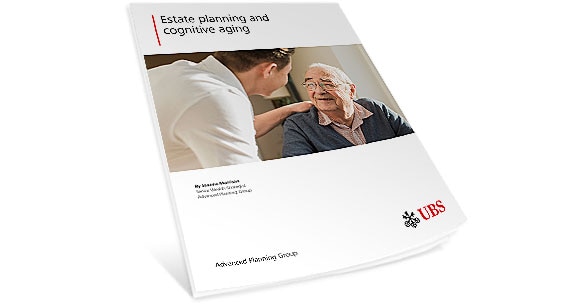Estate planning and cognitive aging
Planning ahead can help protect you and your loved ones


![]()
header.search.error
Planning ahead can help protect you and your loved ones

Conversations concerning cognitive decline can be difficult. By planning ahead, you can protect yourself and your loved ones should you ever find yourself unable to make personal or financial decisions.
Americans are aging. The 2020 United States Census showed that the number of Americans over the age of 65 has grown by over a third since 2010.1 As we age, we may become more susceptible to financial abuse, such as identity theft, fake investments and offers, threats, and intimidation. This vulnerability can be further exacerbated for people with a cognitive decline, such as dementia.
To ensure your wishes or those of your loved ones are carried out as intended, take time to think through what is important and put critical documents in place.
A power of attorney for property, a last will and testament, and a revocable trust can all work in conjunction to efficiently carry out your wishes, not only when you pass but also if you become incapacitated.

It’s critical to have legal documents in place that speak to your wishes when you no longer can speak for yourself.
Power of attorney for health care (sometimes referred to as an advanced health care directive)
Organize and communicate

To learn more about estate planning for yourself and aging loved ones, download our publication, Estate planning and cognitive aging, or speak with a UBS Financial Advisor.
